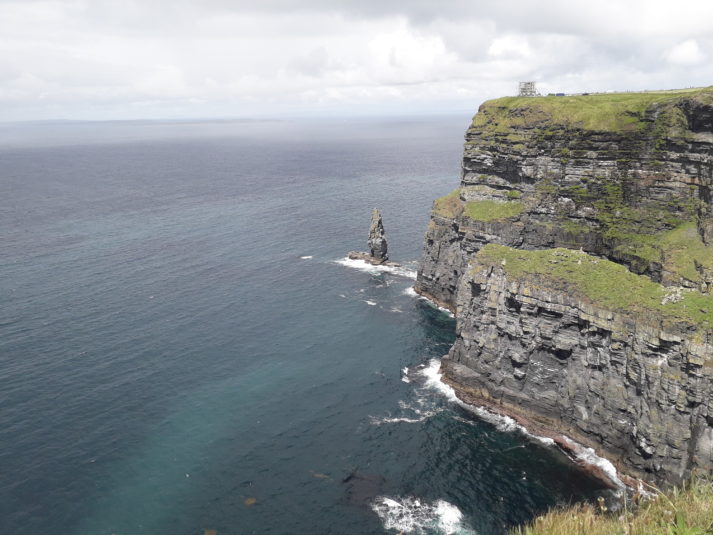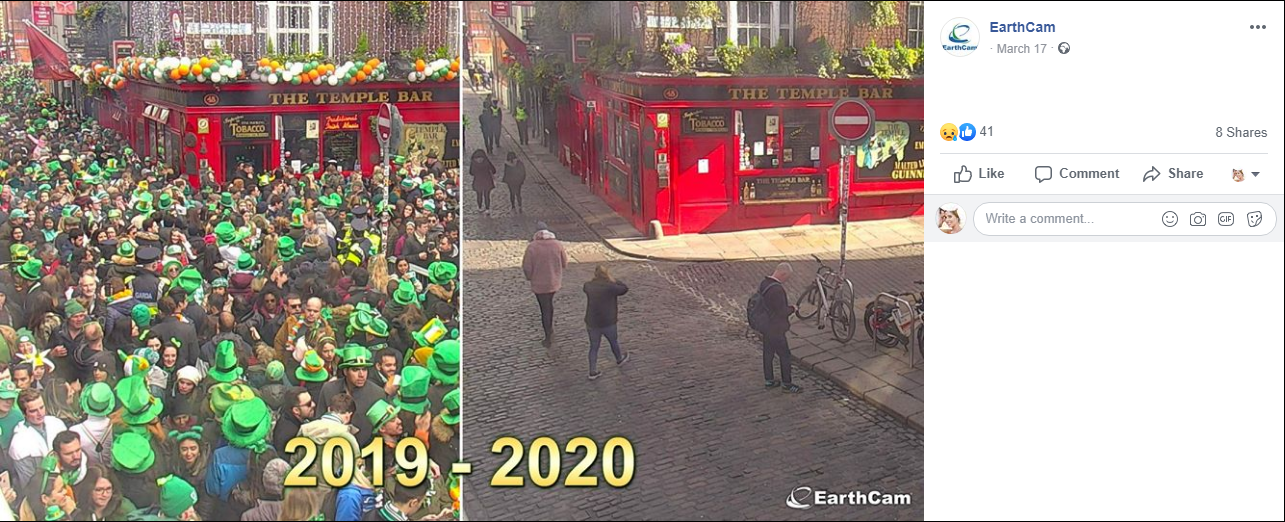Where Dublin’s city centre usually is a hive of daily activity, the streets and attractions have been plunged into an ominous silence.
Ordinarily you had to jostle to get past other pedestrians on sidewalks, but now you can wave your arms in all directions quite comfortably. Not that anyone really wants to do it, though.
The coronavirus arrived here in Dublin about two weeks ago and ever since the city has become more and more quiet. To date, there have been almost 600 confirmed cases of the virus in the Republic of Ireland, with three deaths.
On St Patrick’s Day, the one day in the year when the Irish celebrate their origins exuberantly, the city was silent. Where people usually dance in the streets, sing and drink litres of Guinness, this year there were no balloons, flags or Leprechaun outfits in sight and no traditional Irish music to be heard.
The previous ‒ and in fact, the only ‒ time that St Patrick’s Day celebrations had been cancelled, was in 2001, when an outbreak of foot-and-mouth disease necessitated it.
In addition, two days before the St Patrick’s Day celebrations were supposed to have taken place, Irish Prime Minister Leo Varadkar announced that all pubs have to close their doors up to the end of the month.
As a result, more than 7 000 pubs all over the country have closed and more than 50 000 people have been left unemployed and without any income for the next two weeks.
Most people also have been working from home for more than a week already, as a result of which far less people use public transport.
Everyone longs to spend some time outdoors. Here in Dublin, people love walking and therefore you will see many people in the early morning before work and late afternoon after work enjoying the fresh air and some form of exercise in the parks with their families, while all still maintaining a safe distance from each other.
As gyms have also closed for the next few weeks, more and more people are exercising in the parks. Joggers are still advised to keep a distance of 2 meters from others and training groups may not exceed 10 people. Everyone has to exercise 2 meters from each other at all times.
People who work in shops all wear gloves and the card machines are disinfected and cleaned after every transaction. Many of the stores have introduced new policies that prohibit customers from using cash, in order that they (the customers) may handle their cards themselves, which ensures a higher level of hygiene.
In some pharmacies, access to the shelves have been restricted, as a result of which you have to walk to the counter and ask someone to get the required product for you. Many pharmacies also do not allow more than two people inside at a time.
All non-essential flights into and out of the country have been restricted, but no flights have been banned yet. How long these measures will last, is not certain, however the government keeps the public informed on a daily basis.
As Ireland is such a small country, the virus is spreading rapidly. Therefore, it is important to pay more attention to personal hygiene and to be aware of what you touch and what to do when you cough or sneeze.
Let’s endure cabin fever and stay at home. It is not fun, in fact, it can be quite frustrating, but this is the best way for us to put a stop to this virus!
Share on
Latest articles






















